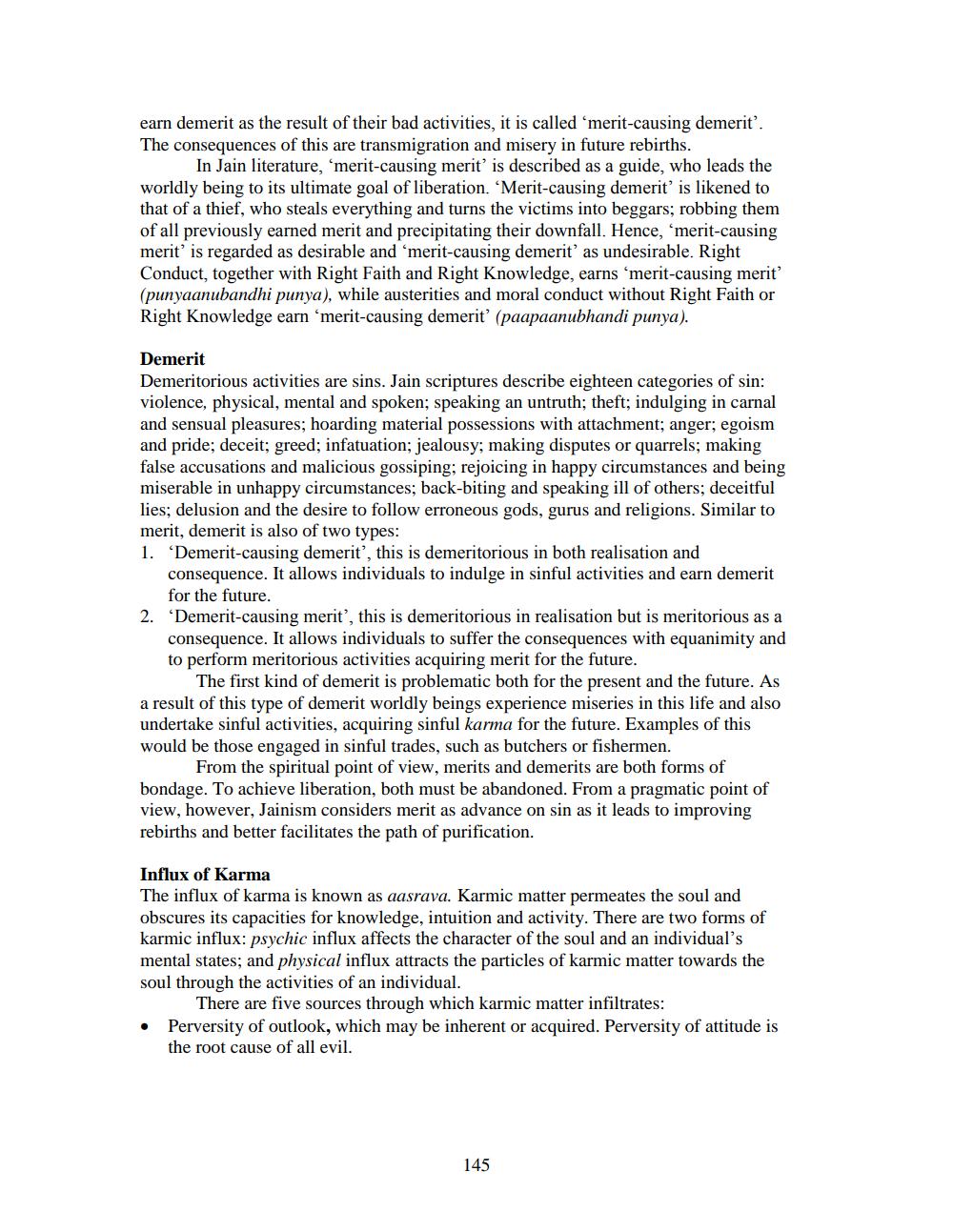________________
earn demerit as the result of their bad activities, it is called 'merit-causing demerit'. The consequences of this are transmigration and misery in future rebirths.
In Jain literature, 'merit-causing merit' is described as a guide, who leads the worldly being to its ultimate goal of liberation. "Merit-causing demerit" is likened to that of a thief, who steals everything and turns the victims into beggars; robbing them of all previously earned merit and precipitating their downfall. Hence, 'merit-causing merit' is regarded as desirable and 'merit-causing demerit' as undesirable. Right Conduct, together with Right Faith and Right Knowledge, earns 'merit-causing merit" (punyaanubandhi punya), while austerities and moral conduct without Right Faith or Right Knowledge earn 'merit-causing demerit' (paapaanubhandi punya).
Demerit
Demeritorious activities are sins. Jain scriptures describe eighteen categories of sin: violence, physical, mental and spoken; speaking an untruth; theft; indulging in carnal and sensual pleasures; hoarding material possessions with attachment; anger; egoism and pride; deceit; greed; infatuation; jealousy; making disputes or quarrels; making false accusations and malicious gossiping; rejoicing in happy circumstances and being miserable in unhappy circumstances; back-biting and speaking ill of others; deceitful lies; delusion and the desire to follow erroneous gods, gurus and religions. Similar to merit, demerit is also of two types:
1. 'Demerit-causing demerit', this is demeritorious in both realisation and
consequence. It allows individuals to indulge in sinful activities and earn demerit for the future.
2. 'Demerit-causing merit', this is demeritorious in realisation but is meritorious as a consequence. It allows individuals to suffer the consequences with equanimity and to perform meritorious activities acquiring merit for the future.
The first kind of demerit is problematic both for the present and the future. As a result of this type of demerit worldly beings experience miseries in this life and also undertake sinful activities, acquiring sinful karma for the future. Examples of this would be those engaged in sinful trades, such as butchers or fishermen.
From the spiritual point of view, merits and demerits are both forms of bondage. To achieve liberation, both must be abandoned. From a pragmatic point of view, however, Jainism considers merit as advance on sin as it leads to improving rebirths and better facilitates the path of purification.
Influx of Karma
The influx of karma is known as aasrava. Karmic matter permeates the soul and obscures its capacities for knowledge, intuition and activity. There are two forms of karmic influx: psychic influx affects the character of the soul and an individual's mental states; and physical influx attracts the particles of karmic matter towards the soul through the activities of an individual.
There are five sources through which karmic matter infiltrates:
Perversity of outlook, which may be inherent or acquired. Perversity of attitude is the root cause of all evil.
145




